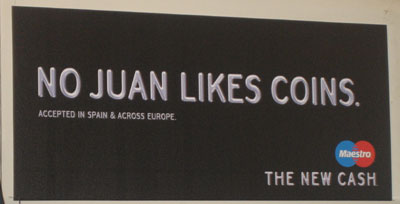DEPARTMENT OF SPEECH, HEARING & PHONETIC SCIENCES UCL Division of Psychology & Language Sciences |
 |
|
|
John Wells’s phonetic blog archive 16-30 September 2008To see the IPA phonetic symbols in the text, please ensure that you have installed a Unicode font that includes them all, for example Lucida Sans Unicode or Charis SIL (click name for free download). Browsers: I recommend Firefox (free) or, if you prefer, Opera (also free). email:
|
Tuesday 30 September 2008 | Simplicity in transcriptionWe normally transcribe the English word red as red. But there are two things here that worry some people. First, they argue, the initial consonant is a voiced postalveolar approximant and should therefore be written ɹ. Second, the vowel is lax (short) and should therefore be written ɛ. Let us take first the question of how to transcribe the initial consonant. It can indeed be narrowly represented as ɹ. That would be an appropriate ‘impressionistic’ transcription. However, in the old IPA Principles booklet (1949) we read 27. (a) ... it is desirable to substitute more familiar consonant letters for less familiar ones... (Note to the young: until quite recently, to substitute A for B always meant to use A instead of B, not the other way round.) (e) The letter r may, when convenient, replace ɹ, ʀ or ʁ in the transcription of a language containing one of these sounds but not a rolled lingual r... This idea was put most clearly by David Abercrombie in his English Phonetic Texts (Faber, 1964), p. 17-18. “A simple phonemic transcription uses letters of the simplest possible shapes. This is a typographical principle: the simplest shapes are the most familiar, the most typographically satisfactory.” He goes on to say that ŋ ʒ ɯ ʎ are less simple, because less ‘romanic’, more exotic, than the traditional letters of the alphabet. “The conventions and traditions of the IPA often allow, for the representation of a particular sound, a choice between two or more different letters. In these cases where such a choice exists, one of the letters will usually be found to be more romanic ... than the alternative.” Somehow this principle of simplicity seems to have got dropped from the current IPA Handbook (CUP 1999), but I believe it is still valid. It immediately justifies the use of r rather than ɹ and e rather than ɛ for English. In the case of the vowel, there is the further point that, as the IPA Handbook itself mentions (p. 30), the vowel phoneme of get in Standard Southern British English has allophones, according to phonetic environment, which mostly lie between the cardinal vowels [e] and [ɛ], some realizations being close to one and some to the other. It is therefore permissible to choose either symbol as the one to represent the phoneme. |
|
Monday 29 September 2008 | More faulty signageIt isn’t really phonetics, but my posting about signage (blog, 26 Sep.) has evoked a number of comments. Several people pointed out that you can find plenty more faux-Welsh signs by searching on "scymraeg" or going to this page on Flickr. You have to feel sorry for Tesco, who are clearly trying hard but not quite hard enough. (The word ffrwythau ‘fruit’ is right in the top line, wrong in the third line.)
Welsh is unusual in making use of a circumflexed w, namely ŵ, as in dŵr meaning ‘water’. (I do hope you can see it properly on your screen.) Here’s what happens if you ask for a character that isn’t in the current character set. Users of phonetic symbols in word processing or presentation software may recognize the problem.
As the commentator on Flickr says, Supermarket finally decides to do something about their lack of bi-lingual signage, after 30 years of ignoring protests. Several other correspondents mentioned the Engrish website, where we see comparable mangling of English in foreign countries. Katalin Kovats sent me this, which she found in France.
You can find more by Googling "Japlish", "Chinglish", "Singlish", and the like. (But perhaps Jennifer Jenkins would think it inappropriate for us NSs to criticize NNSs.)
|
Friday 26 September 2008 | Open wide, pleaseAs I lay in the dentist’s chair with my mouth wide open and stuffed with dental instruments, the dentist asked Is 'everything O/K? Given those circumstances the range of possible places and manners of articulation was severely restricted, and I answered /ŋŋ̊ŋ — which means ‘yes’. Under normal circumstances I would have said /mm̊m or /m͡ŋm̊͡ŋ̊m͡ŋ or /ə̃hə̃ or possibly /Yup. But it occurs to me that with any other form of “words” I would not have used this rising tone. (By the way, it’s a mid-rise, and ends higher than a grudging low rise.) Other ways of saying ‘yes’ would have not a rising but a falling tone. */Sure. \Yes, | I’m \fine. Even yes in its normal pronunciation jes feels odd with this mid rise. Only jʌp or jep, final plosive unreleased, will do. I have no idea why. And how would I have answered ‘no’? If I were American I’d’ve said 'ʔŋʔ\ʔŋʔ But since I’m not, I would have had to say just \ŋːː or something of the sort. Ouch! |
|
Wednesday 24 September 2008 | GlotteralityWhat Tony Blair did a decade ago, the politician David Miliband is doing today, according to a feature article in yesterday’s Guardian newspaper. It is claimed that he is “dropping received pronunciation” and taking his accent down-market. According to the article, which is by the voice coach Luan de Burgh, this involves his ‘dropping the dark L’ (i.e. vocalizing it) and ‘dropping “t” from the end of words’ (i.e. glottalling it). Luan’s description of these processes is clear and accurate, except that one might quibble about the term ‘dropping’, since it is a matter of replacement rather than deletion. However at this point the article brings into play a technical term, one you’ve certainly never heard before. It is the glotteral stop — not just once (which might have been an excusable slip) but twice.
Luan confirms that this embarrassing mistake, glotteral for glottal, was not his, but that of the Guardian’s subeditors, and that it will be corrected today. Someone at the Guardian ought to have a red face. [PS Yes, it has been corrected in the Corrections and Clarifications column. It’s still wrong on the website, though. Furthermore, Harry Campbell has discovered that glotteral has 800-odd Google hits, only a few connected with the Guardian article. Some kind of contamination from guttural, no doubt.] |
|
Tuesday 23 September 2008 | T voicingTonio Green writes, I read your piece about avoiding predictable allophones in dictionary transcriptions, but it occurs to me that in the Longman Pronunciation Dictionary you do show one predictable allophone: the flapped /t/ of American English in words like pretty. This is something almost no other dictionary shows (the only other one I can think of is Websters Third New International), so I can't help but wonder why you chose to show it. Was it just because American flapping is so salient to British ears?
Touché. Good point (though EPD and ODP show t voicing, too). This would indeed appear to be showing an allophonic fact, contrary to the principle that I set out in the previous posting (blog, 19 Sep.) My immediate reaction was this: Yes, and because the conditions for its (non-)ocurrence are rather complicated. Actually, in my view it's the phoneme d on the whole, and that's what the Oxford Dictionary of Pronunciation shows it as. But my publishers Longman thought, no doubt rightly, that it would not be acceptable to teachers of AmE to write it as d. ...which Tonio followed up with Not to mention native speakers of American English who aren't teachers! I have a pretty strong gut feeling that atom and Adam are phonemically different (cf. atomic and Adamic) even if I do make them homophones most of the time. If I saw the pronunciation of atom given in a dictionary as ˈædəm, I'd think it was a mistake, or a grave misunderstanding of AmEng phonology. After all flapping can always be "lifted", e.g. in slow, careful speech, and it often doesn't apply when pronouncing words that are somehow "unusual" or unfamiliar. (In fact, I vaguely remember seeing a study that had looked at flapping across a corpus of hundreds of telephone calls made between American English speakers, and flapping actually occurred in only about 70% of the environments where it could have. I wish I could remember where I saw that study or who had conducted it, but I can't.) Er... ˈædəm is precisely how the AmE version of atom is written in ODP. My considered justification for the LPD symbol t̬ would also include the claim that it is a handy abbreviatory convention for precisely this stylistic hesitation between t (rare) and d (usual). And actually a voiced t is not necessarily identical with an ordinary d, in particular because of its short duration and in its effect on the duration and possibly the quality of the preceding vowel or diphthong. Personally, I prefer to call the process ‘tapping’ or ‘voicing’ rather than ‘flapping’, since the output of the process is phonetically a tap ɾ (quick contact up and down) rather than a flap ɽ (quick contact in the course of a foward ballistic movement). It differs from the default realization of t in both voicing and (usually) manner. |
|
Monday 22 September 2008 | Institutionalized mispronunciationsMany English-speaking Poles seem to believe that comfortable is pronounced with -teɪbl at the end, just like table. Native speakers, on the other hand, know that it has a weak vowel, -təbl, like other words with the -able suffix (conceivable, perishable, preferable). This seems to be not so much a personal error of this or that EFL speaker in Poland, but an institutionalized mispronunciation passed on from teacher to learner and from one Pole to another. There are other comparable cases. I am not referring to general errors of pronunciation such as difficulties with this or that sound, but to lexically specific ones affecting particular (pɑː- ? No, pə-) words in the vocabulary. Many EFL learners seem to believe that clothes is pronounced as two syllables, ˈkləʊðɪz or the like. But native speakers pronounce it as one syllable, either kləʊðz as I say it myself (or at least that’s how I think of it) or simply kləʊz, i.e. as a homophone of close (v.), which is how Jack Windsor Lewis thinks most people say it. Another institutionalized mispronunciation, which I associate particularly with Germans, is saying evening (the time of day) with three syllables, ˈiːvənɪŋ, rather than with the two that native speakers use, ˈiːvnɪŋ. (Judging by the Old English spelling ǽfnung, this word has been disyllabic in native English for over a thousand years.) I am sure readers will have other examples. PS Yes! Harry Campbell mentions aɪˈdiː for idea, frequently heard from people whose first language is French. |
|
Friday 19 September 2008 | Explicitness in transcriptionWhen I talk in public about pronunciation dictionaries one of the questions I am frequently asked concerns the level of phonetic detail that each dictionary entry ought to show. Why don’t we show the aspiration of the initial plosive in time taɪm, thus tʰaɪm? Why doesn’t the dictionary show the glottal stop as a possibility in right raɪt, i.e. raɪʔ? (After all, that’s how it is frequently pronounced.) Why don’t we show that the lateral in sell sel is dark, thus seɫ? (Or perhaps we ought even to write sɛ̈ɫ, showing what happens to the vowel in this environment. Not to mention such further possibilities as sɛ̈o). The usual answer is that each of these would constitute allophonic as opposed to phonemic notation. Despite the difficulties that modern linguistics has with the notion of phoneme, the point remains: the aspiration, the glottalling, and the velarization are predictable by rule. Therefore they do not need to be symbolized explicitly each time they happen. Furthermore, allophones at the edges of words typically apply only in certain environments. A glottal stop in right now raɪʔ naʊ will pass unnoticed in mainstream BrE or AmE. But in right away, thus raɪʔ əweɪ, it would convey a particular regional/social message. Different phonetic contexts demand different allophones. The lateral at the end of sell is not dark in all contexts. In a phrase such as sell it, with a vowel following, it is clear. Marking it as dark in the dictionary entry would actually be misleading. | tʰ ʔ ɫ |
Thursday 18 September 2008 | Ugh!All good students of phonetics learn to recognize and perform a close back unrounded vowel, ɯ. But because it is perceived by most of them as a very strange and exotic sound they tend to overarticulate it: tense jaw muscles, tensely spread lips, extra length, grimace. Those in whose language it occurs, on the other hand, naturally treat it as a perfectly ordinary and everyday sound. They pronounce it in quite a relaxed way. As far as the languages I have come into contact with are concerned, that means speakers of Korean or of Scottish Gaelic. In both of these languages it contrasts with a close back rounded u. The Korean word for ‘writing, a piece of writing’ exemplifies this vowel: it is 글 kɯl (or you might prefer to show the initial consonant as a devoiced g̊). Of the two competing romanizations of Korean, one represents the word as geul, the other as kŭl. You usually get something similar for the close back vowel of Japanese. But that’s not so good for demonstration purposes, since Japanese has no contrast of rounding. Some time ago (blog, 28 June 2006) I mentioned the excellent treatment of Scottish Gaelic phonetics on the strangely named Akerbeltz website. In the section dealing with vowels there are copious examples of ɯ, long and short. Thus for the long vowel we have for example caol kɯːɫ̪ (narrow) and for the short uisge ɯʃɡ̊ʲɪ (water, the etymon of whisky) Here in Poznań I have been teaching some elementary phonetics to an international group of students in the Interlinguistic Studies programme. When we got to vowel description, fortunately we had a Korean among us to demonstrate ɯ. It makes a difference for students to hear one of themselves pronouncing sounds perceived as difficult or exotic, rather than just the teacher. And for the student who acts as an informant it gives a kind of pride to discover that their own language contains sounds that other students find difficult to recognize and reproduce. |
Wednesday 17 September 2008 | PhonlineMichael Ashby tells me that PHONLINE, a complete online distance-learning course in phonetics, which was developed and piloted at UCL in 2006, will be running again from November 2008 to February 2009. The course will be delivered by an interactive website, with course content and interactive discussions available online using an ordinary web-browser. Read more about it here. The deadline for application is 5th October 2008. Enquiries to phonline@ucl.ac.uk. In connection with Harrovian and similar formations (blog, 5-8 Sep.), Harry Campbell writes I feel obliged to bring up the case of Glasgow here. Why Glasgwegian rather than *Glasgovian? (Cf French Glasvégien, Glasgovien). I am too ignorant to know, but looking in OED I see a quotation from the [Glasgow] Herald of 1923: "'Glaswegian' is both ugly and absurd... Let us in the name of etymology and common sense be Glasgovians." The first citation is from 1818 (Scott) and their etymology says that Glaswegian is on the model of Galwegian (Galloway), which is in turn on the analogy of Norway (Norroway) → Norwegian. For Galloway there is also the adjective Gallovidian from Gallovidia, "a Lat. form of Welsh Gallwyddel = Irish Gall-gaidhil, lit. 'foreign Gaels', now Galloway, a district in the SW. of Scotland (the shires of Wigton and Kircudbright)". Apparently the adjective Galwidian also applies to Galway in Ireland. Gallovidian gets 7500 Google hits, Galwidian only one. |
Tuesday 16 September 2008 | No JuanHere is an advertisement for the Maestro debit card I saw in the train on the way to Gatwick Airport. It involves a bilingual pun.
Spain is a major tourist destination for English people. In Spanish the name Juan is pronounced xwan. We have no x (voiceless velar fricative) in English, so Spanish x is normally mapped onto English h. xwan But in England the cluster hw is no longer used in native words such as what, which, where: we simplify it to w. Hence the Spanish cluster that started out as xw ends up in English as plain w. → wan Spanish a sounds quite similar to English ʌ. → wʌn So Spanish Juan xwan can be identified with English one wʌn. “No one likes coins.” That’s what the advertisement claims, anyhow. Sorry, I know jokes aren’t funny if you have to explain them. PS. This reminded Kel Miller of an old joke: A woman gave birth to identical twins, but unfortunately she and her husband couldn't afford to keep them, and gave the boys up for adoption. On the boys' second birthday, the couple received photos of the two children, one of which had been adopted by a Mexican family and one by an Indian family. After showing her husband the photo of their biological son Juan, she asked if he'd like to see the second picture. "Nah," he replied, "If you've seen Juan, you've seen Amal." Lolcats If you’re on Facebook, do join the group LOLphonology. Sample:
(Thanks, Language Log.) |
Blogroll links:
- DCblog (David Crystal)
- Language Log (Mark Liberman, Geoff Pullum et al.)
- John Maidment
- Separated by a common language (Lynne Murphy)
- Linguism (Graham Pointon)
- PhonetiBlog (Jack Windsor Lewis)
Archived:
To search my web pages, use this Google search.






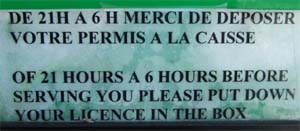




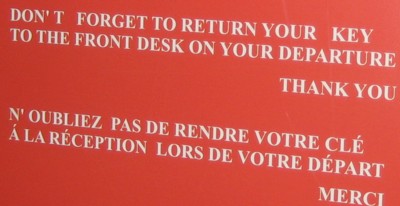

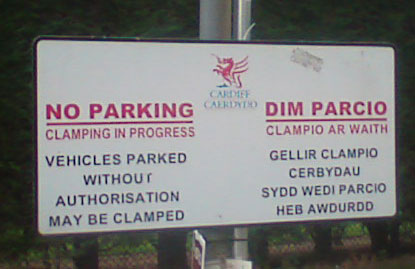
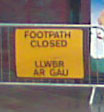
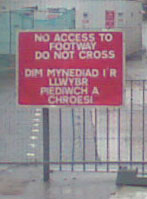



.jpg)





